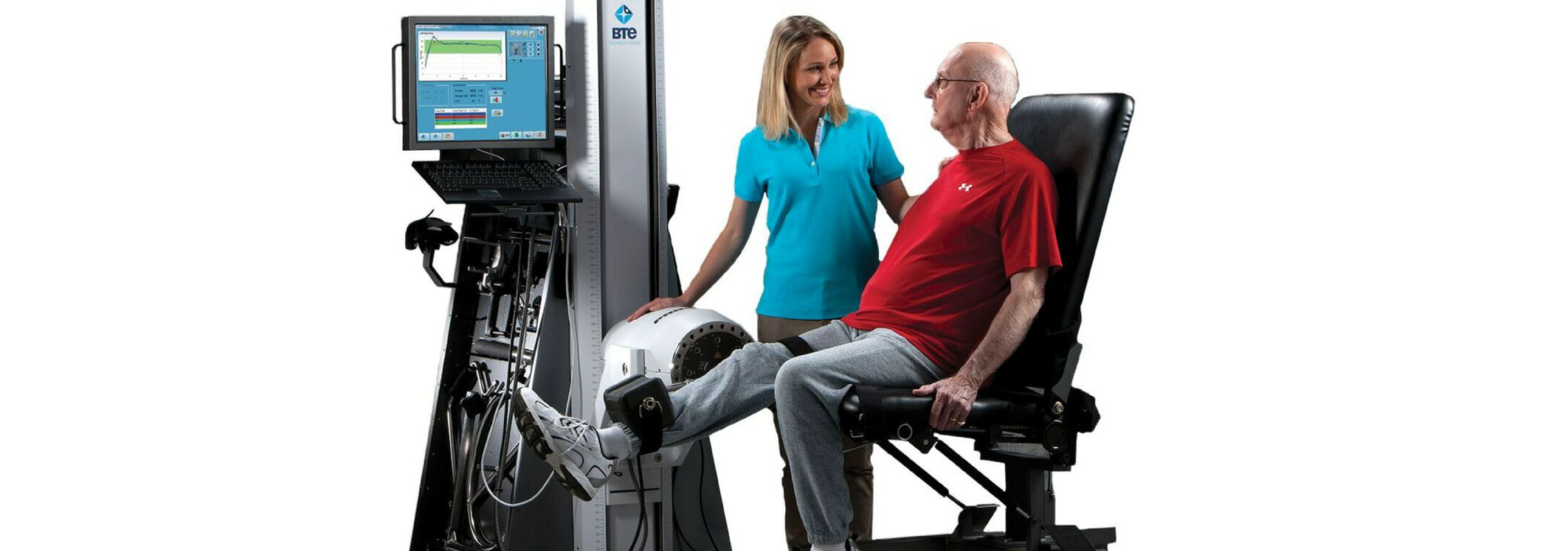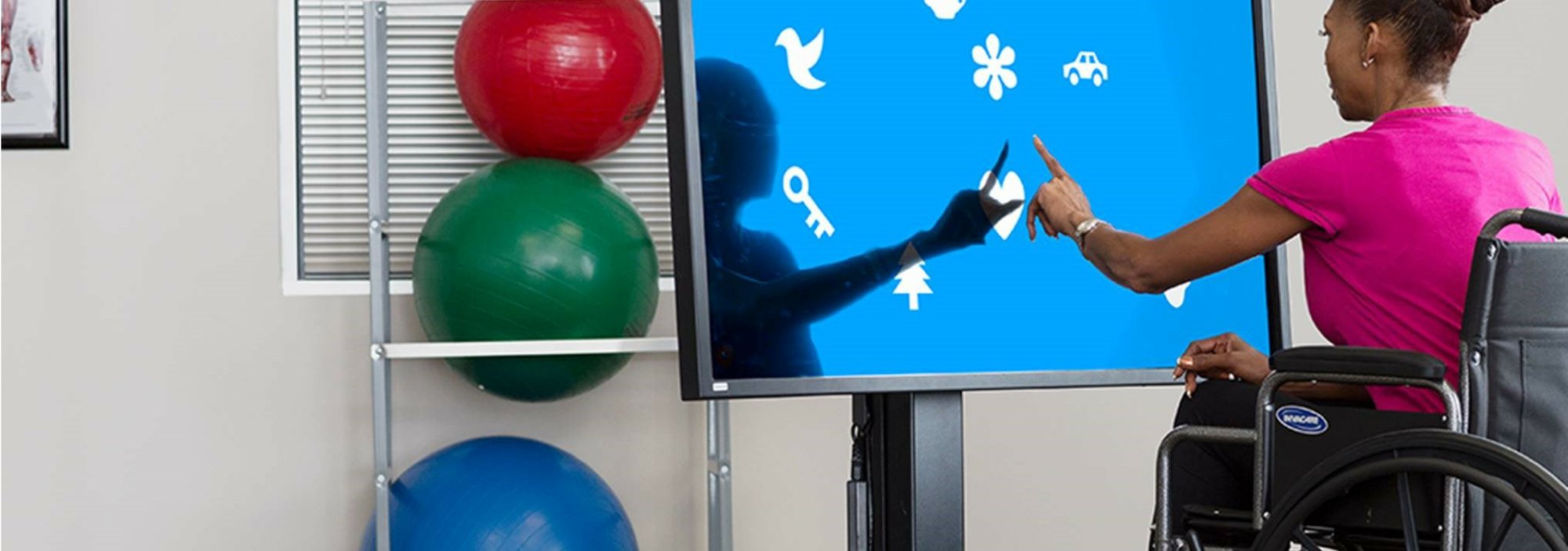By Andy Thomas, Director of Physiquipe
I recently read the article on Michael Johnson’s recovery post stroke last year. We work with some of the highest profile sports teams in the world, so to see one of the greatest athletes of all time reduced to completing 200m in 15 minutes, when he had completed it in a then world record time of 19.32 seconds, is a scary thought. So much time, money and effort is put in to rehabilitation of the elite athlete and most top teams have incredible medical departments with the most advanced technology. It raises the question, what challenges are the NHS facing and are they offering what is needed in neurological rehabilitation?
"There are over 113,000 strokes every year in the UK (Rothwell et al., 2004)* and there are over 950,000 stroke survivors aged 45 years and over (Geddes et al., 1996).* Many of these stroke survivors experience significant and long-term physical and psychological impacts, repeat strokes, transient ischaemic attacks (TIAs) and/or death within a year of stroke (Stroke Association, 2017). We estimate that annual NHS costs of stroke are set to treble from £3.4 billion in 2015 to £10.2 billion in 2035."
Stroke Association
The Prime Minister launched the governments 10 year plan this week which is aimed at prevention and early detection. However, is the NHS going to be able to cope with this bearing in mind “some senior doctors have warned hospitals were facing a near-on impossible task” or will it be left to the private sector to offer such services?
Rehabilitation of neurological conditions can be a long and labour intensive process. Patients require specialist assessment and personalised rehabilitation to help achieve the maximum functional outcome for their individual specific needs. Speaking with physiotherapist and Bioness sales manager, Matthew Dale, he believes the UK is not as advanced as some of our colleagues around the world in this area:
"Internationally, whilst rehabilitation technologies are becoming firmly established, the UK has been slower to adopt these new assistive tools. There are practical reasons – cost, complexity, ideology, accessibility, technology integration as well as the natural fear of people being replaced by robots. It is therefore important for clinicians to understand that technology is not a threat but an opportunity to improve health and working conditions. Forward thinking clinicians are unlikely to be replaced by assistive technology, but technology will be another tool in the belt to improve outcomes and make treatment safer and more efficient."
I have been working to raise the standards of rehabilitation through proven innovation for over 12 years, and established Physiquipe Ltd. seven years ago to focus on providing solutions for the most challenging and costly medical conditions. This is not only to help patients, but also support therapists who have huge physical and emotional demands placed on them by the nature of their work. This is a primary reason why we have teamed up with Bioness, as the solutions they provide are helping many patients and therapists throughout the world.
Bioness is well established in neurological rehabilitation with its Functional Electrical Stimulation (FES) systems, an innovative over-ground gait and safety system; Vector and the latest in visuomotor assessment and rehabilitation; BITS interaction device. From a health and safety standpoint the vector is an essential tool as it allows clinicians to remain focused on their patient’s execution of an activity rather than on therapist safety.
 Bioness Vector
Bioness Vector
The aim is for the patient to be as independent as possible and less likely to need more intense rehabilitation, which is extremely costly. Another way we achieve this is by working with BTE Technologies. BTE manufacture the PrimusRS which is a device that allows replication of Activities of Daily Living (ADL) with variable resistance and Range Of Movement (ROM) capabilities, whilst providing objective data. It widely used within the NHS for upper limb orthopaedic rehabilitation and more recently burns rehabilitation at the Katie Piper Foundation. For the last two years it has been used within Spinal Injuries at the specialist rehabilitation centre based at Musgrave Park Hopsital in Belfast, who also used Bioness FES, were supported by a local charity in purchasing the equipment which was led by the hand therapy team. Here occupational therapist, Julie Morton, discusses how they use the system:
"The biggest clinical challenges we face are clients with muscle imbalance and lack of full range of movement or power in their upper limbs. Our goal is to facilitate a rehabilitation programme towards increased functional use. Previously we have used more direct therapist time to range hands, simulate activities but with less efficiency at reproducing the activity daily, to the same specification.
I first was made aware of the BTE PrimusRS when I attended an session for a business case by the hand therapists who were looking for support in their application for funding. Management wanted to ensure that the equipment would be used by a wide range of therapists and I immediately identified many ways in which we could use the BTE.
 BTE PrimusRS
BTE PrimusRS
We use the BTE for all the Activities of Daily Living simulation tasks e.g. driving, digging, manipulating small tools etc. but we have used it most for the CPM function to improve on passive ranges in pro/sup and wrist flex/ext.; I have also adapted the wrist flexion /ext. to be used with the foot pedal to facilitate MCP flexion for stiff and oedematous joints with good results.
We have a new modality for wrist stability and strengthening which we haven’t had access to before. It enables sessions to be facilitated by support staff freeing up therapist time once programmes are set up. All patient specific goals to date have been achieved and patients have seen the benefit of using the BTE.
We still have lots to learn and develop but are really encouraged by what we have seen so far."
We are working on business cases with many NHS departments and our team can help you to establish if any of our solutions can benefit your centre. We are running an event on innovations in neurological rehabilitation at our clinic in South Manchester In February.
If you are interested in attending please click here to book your place.
 Bioness Integrated Therapy System (BITS)
Bioness Integrated Therapy System (BITS)
